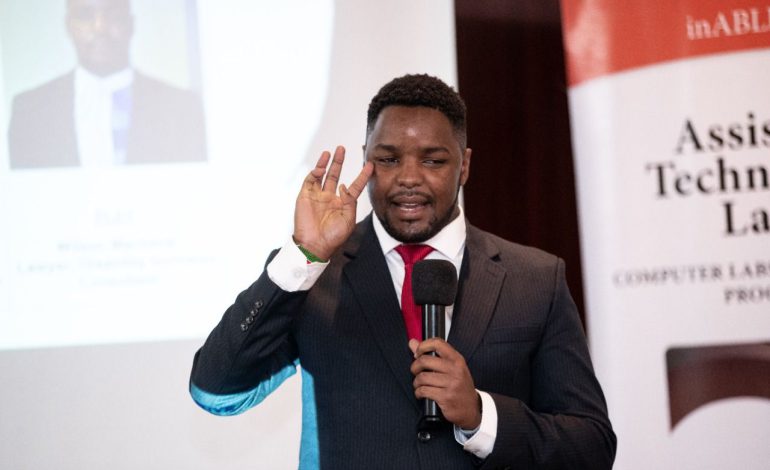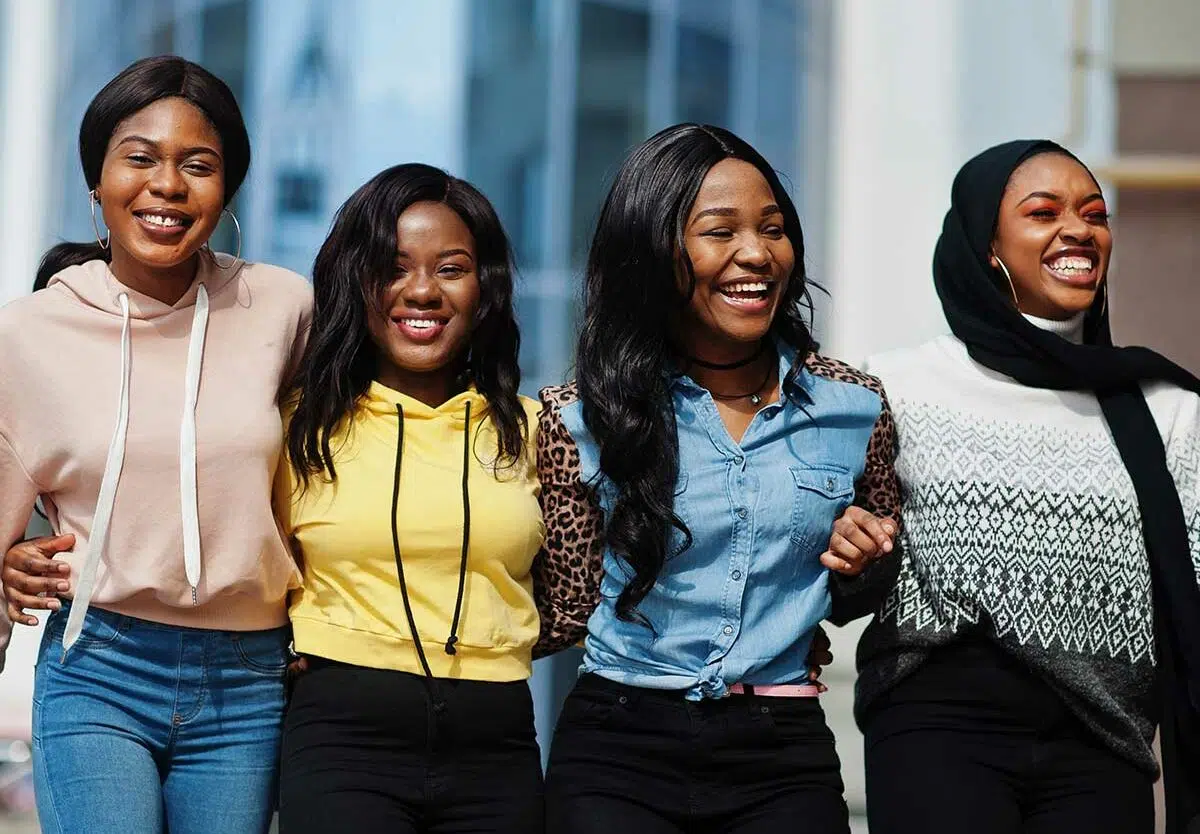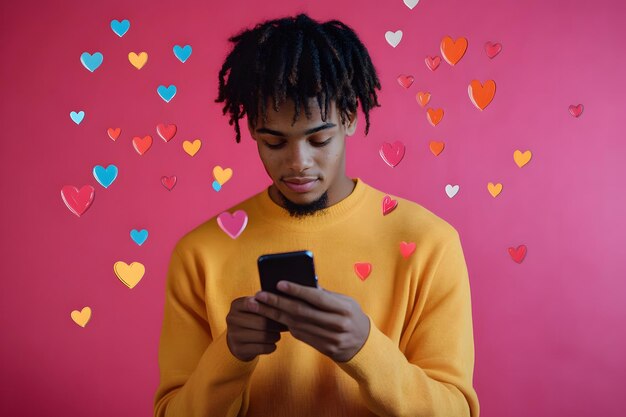Wilson Macharia- only legally blind

Wilson Macharia, a lawyer, a tutor and researcher at the Centre for Human Rights University of Pretoria, and also a disability inclusion consultant with inAble, has the humour and confidence that blinds you to his blindness. He is legally blind, he says, but as far as living life is concerned, he is definitely exploring into his potential much better than many people who have no disability whatsoever.
He was not born with visual impairment, but it occurred very early in his life and so he has no recollection of life with normal eyesight. He learnt that his condition, Hydro chloroquine Retinopathy, was caused by chloroquine, a drug administered to him to treat malaria when he was barely two months old. The drug damaged the macula in his eyes, leaving only a few cells alive, which is why he still has a perception of light.
Wilson only started attending a special school when he was in class six. Until then, he went to normal schools, where he was allowed to take exams orally. When he finally went to a special school, it was St. Lucy’s Primary School for the blind in Meru, where he excelled. He was the top pupil in his class, and proceeded to attend the same school’s High School, in which he and his classmates were pioneers.
He chose to do law, and he got the chance for it at the University of Nairobi, albeit the strangeness of his admission letter not having been specific to which course he had been called to do. “Later, I heard that there had been a disagreement between the Joint Admissions Board and the University,” he recalls, “It’s probably because one of them was not sure about a blind man taking law as a career, which would be why eventually they left the letter blank. I still took law,” he adds.
Inclusivity, for which Wilson is a champion, cannot be discussed away from technology, and even before he says it, it is evident he is savvy in the field. He acknowledges that even the technology that’s available for the visually impaired needs for one to have the initiative to learn in order to be able to maximize on them. As for him, he has nothing against braille, but has discovered and embraced modern technology that’s less cumbersome and makes things much easier.
Wilson when he was admitted to the bar on 5th February 2020
“I remember after high school, playing music on my brother’s computer. I had memorized the way to get to the music. I would press the start button on the far left of the keyboard, then using the arrow keys, go four steps down to open the folder then two steps to the right,” he still remembers vividly. Such was the determination that his brother saw, and acquired for him the first ever text-to-speech software, a screen reader called NVDA (Non-visual desktop access). He later took a computer packages course at Machakos Technical Institute for the Blind. Since then, he has used a myriad of assistive technology, and it is no wonder that he is an inclusivity consultant with inAble. “For everyone else, technology makes things easier,” he says, “But for someone like me, it makes things possible.”
At the university, he insisted that he did not need a braille machine, but a lap top with assistive technology, and he used his own until in his third year when finally, the university acquired for him a laptop with JAWS, the professional screen reader that he uses to date. He did excel and earned a scholarship to take his Masters in Human Rights and Democratization at the University of Pretoria in South Africa. Here, yet again, he earned himself a scholarship to undertake a PhD, which is awarded to only one student every year. Still, he believes it was not out of sympathy for his disability that he got it. “At my masters graduation ceremony, I was called up to the podium for so many awards that by the time they got to this one, I was overwhelmed with emotion and just teared up. I knew it was deserved because even my fellow students, from our interactions had mentioned that they saw me scooping these awards, yet none of them had anticipated that many,” he recalls.
His support system has been great, he acknowledges. Aside from his brother who not only allowed him to use his computer after high school but also installed for him a special software, he remembers, rather humourously, his sister reading his texts for him back then. Rather than look at the inevitable invasion of his privacy on this one, he says it worked for him when he needed to respond to girls’ texts and his sister, being a girl, came in handy. His parents, from the onset, never made him feel like he was any lesser that anyone else. They let him enjoy life like other children, and allowed him to explore his potential in every possible way, something his mother says they did intentionally. It is no wonder, then, the irony that one of the things he enjoys most is drama. He does go to theatres to watch plays and follows through what he hears, which he acknowledges has grown him into a great conversationalist. He also greatly appreciates applications such as Netflix, who have the option of Audio description, that make it easy for him to enjoy watching a movie.
He has had his share of troubles, including being denied a job even after passing all the interviews, because the company did not have the necessary software to enable him to work as a customer care executive. On this, he sued the company and just recently won the case, and is unapologetic about it. He doesn’t seek pity, rather he stands for what he truly deserves and is his right, evident even in his social life. He is dating, but unlike the common scenario of visually impaired people dating people with a disability like theirs, or ladies who can only be housewives, when asked, Wilson categorically states that in fact, he has never dated a girl with visual impairment- he does not discriminate against anyone himself, but he does not allow his standards to be lowered by his disability.
Clearly, no manner of discrimination can exclude Wilson because from the beginning, he chose to be included.




